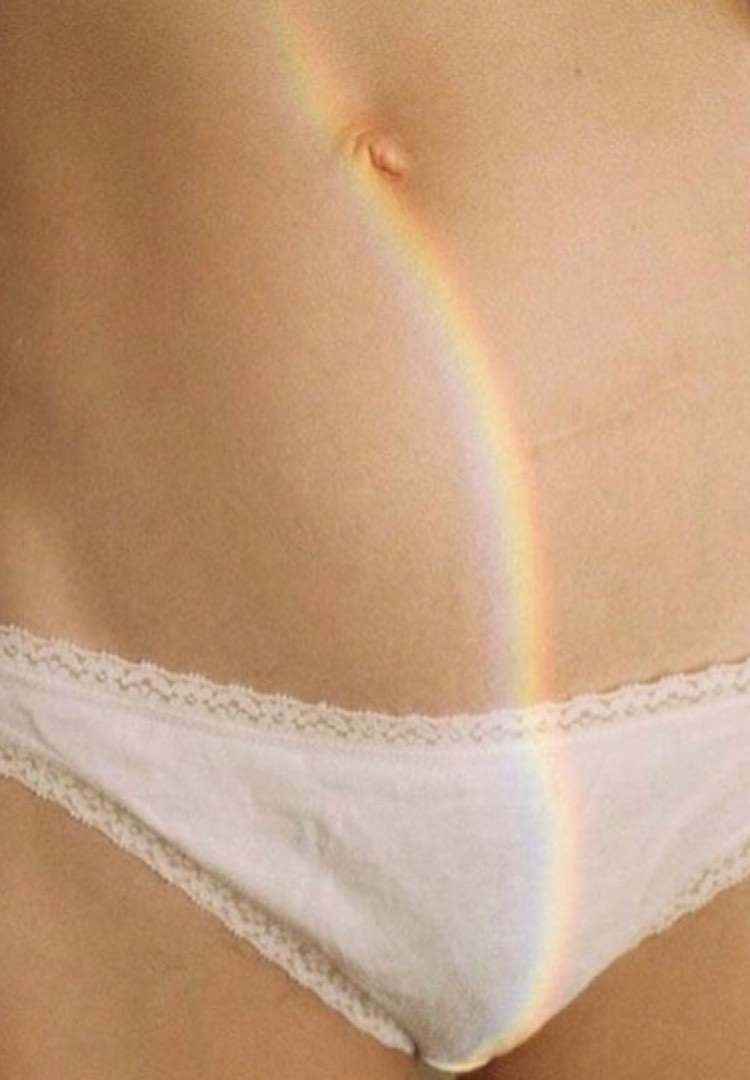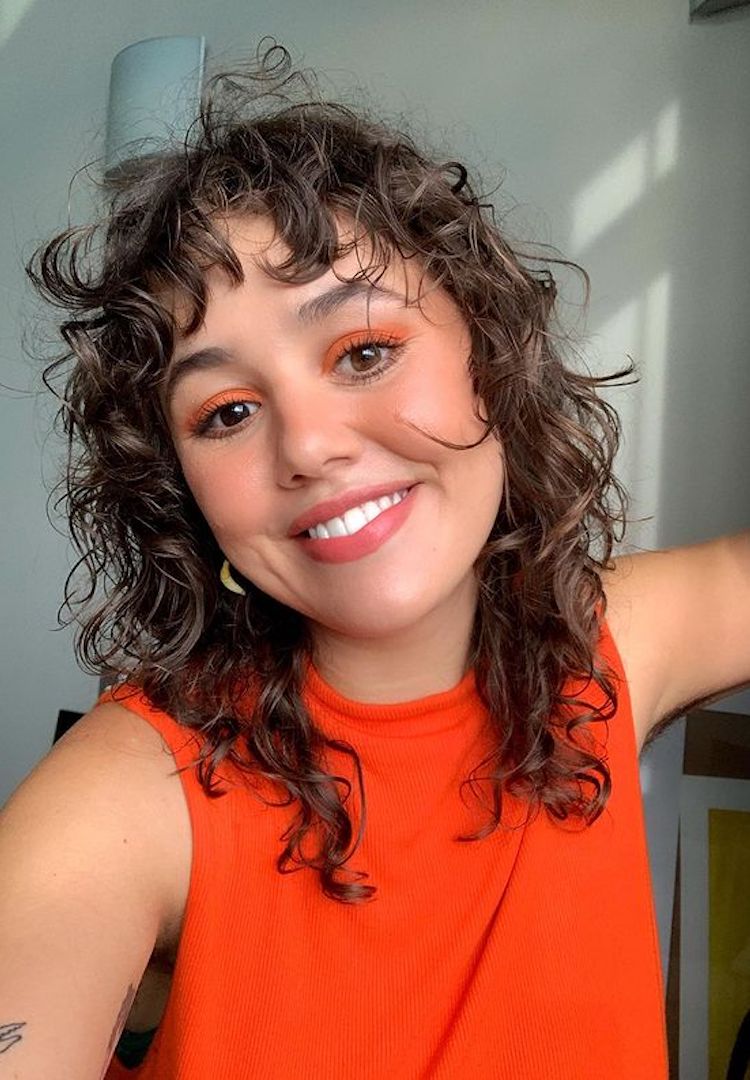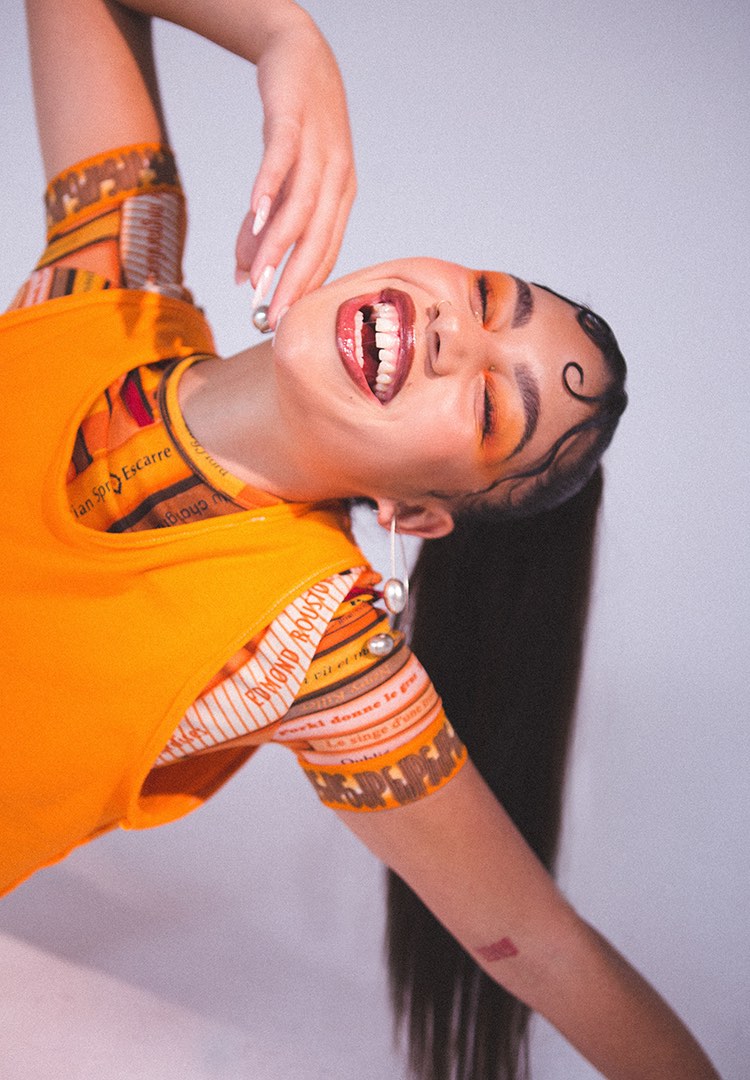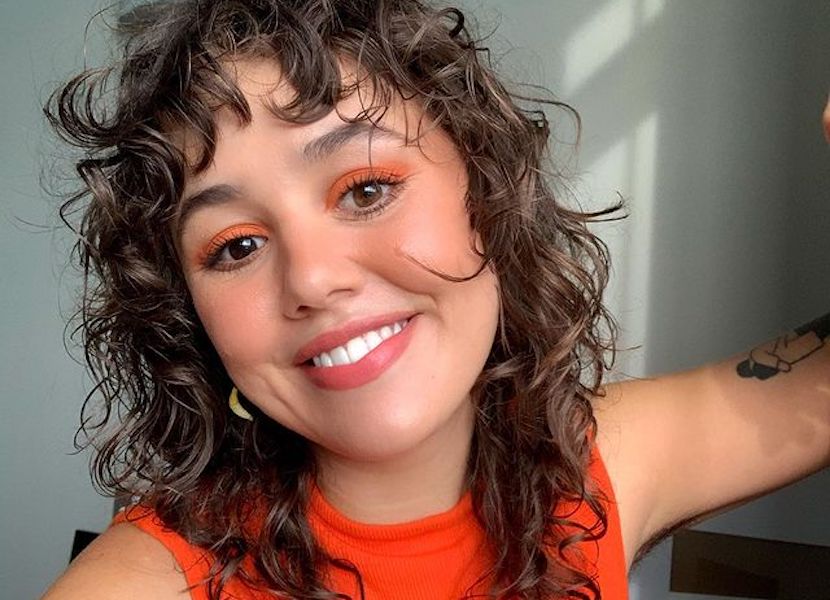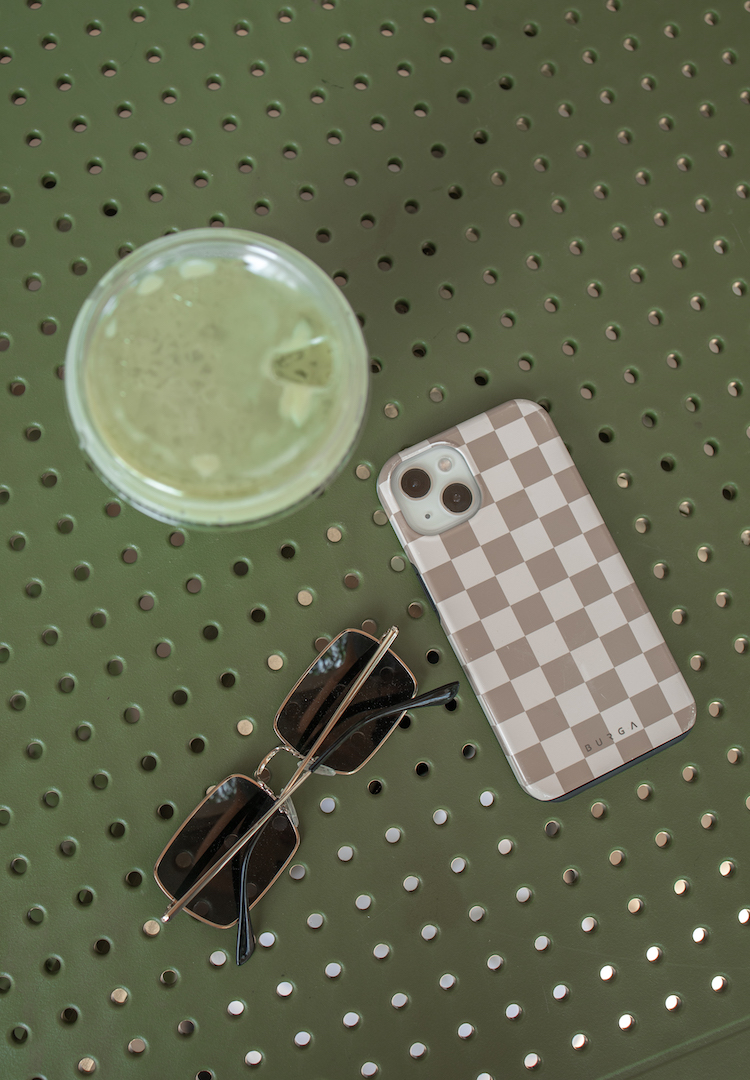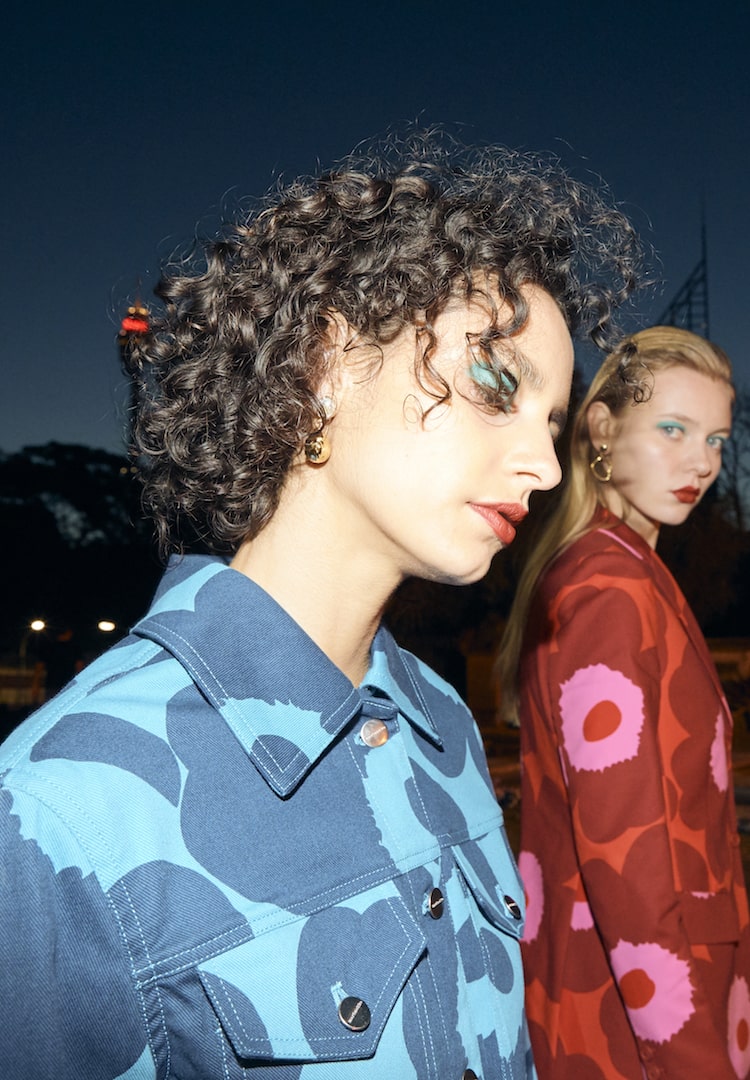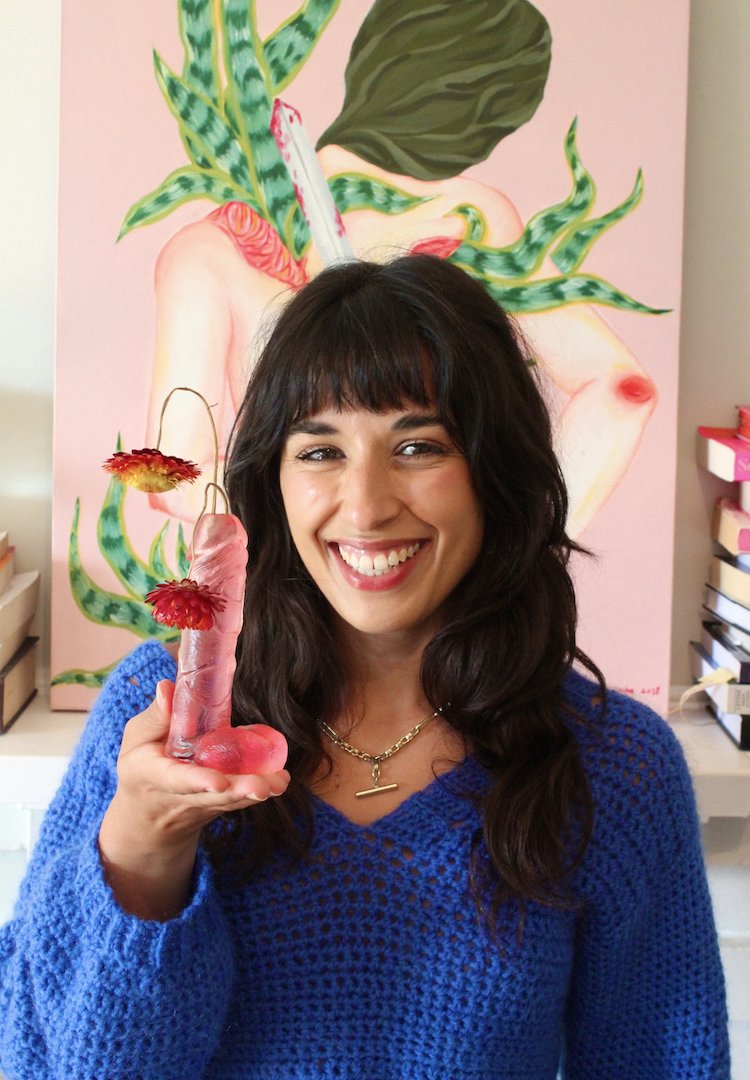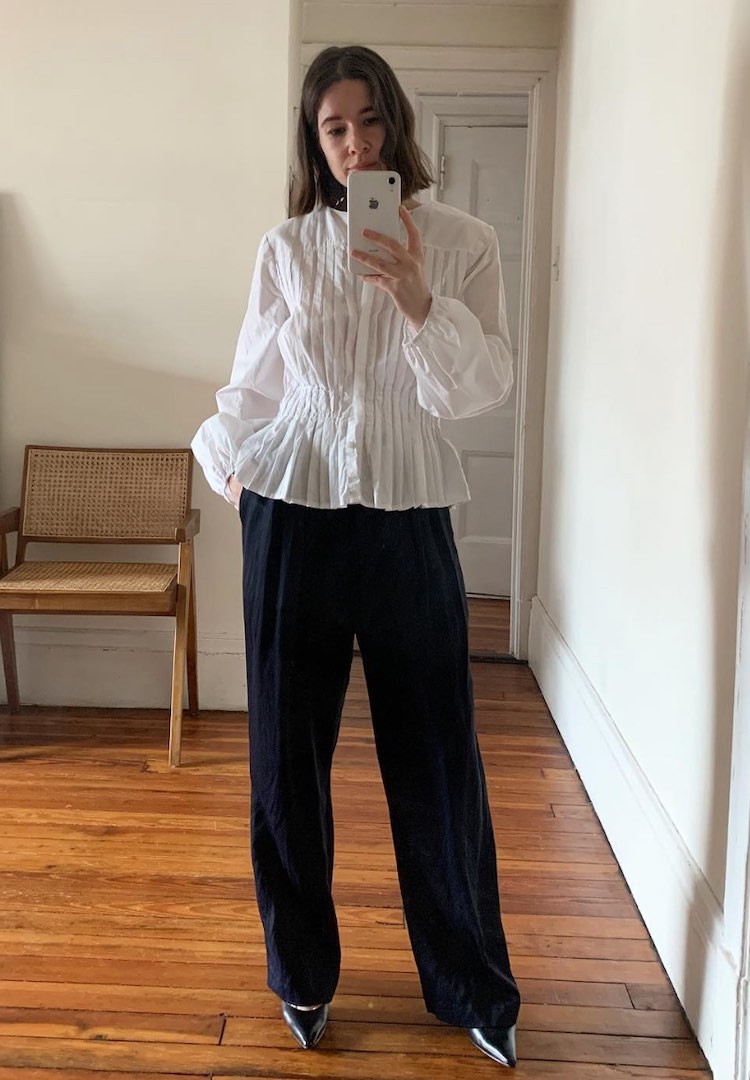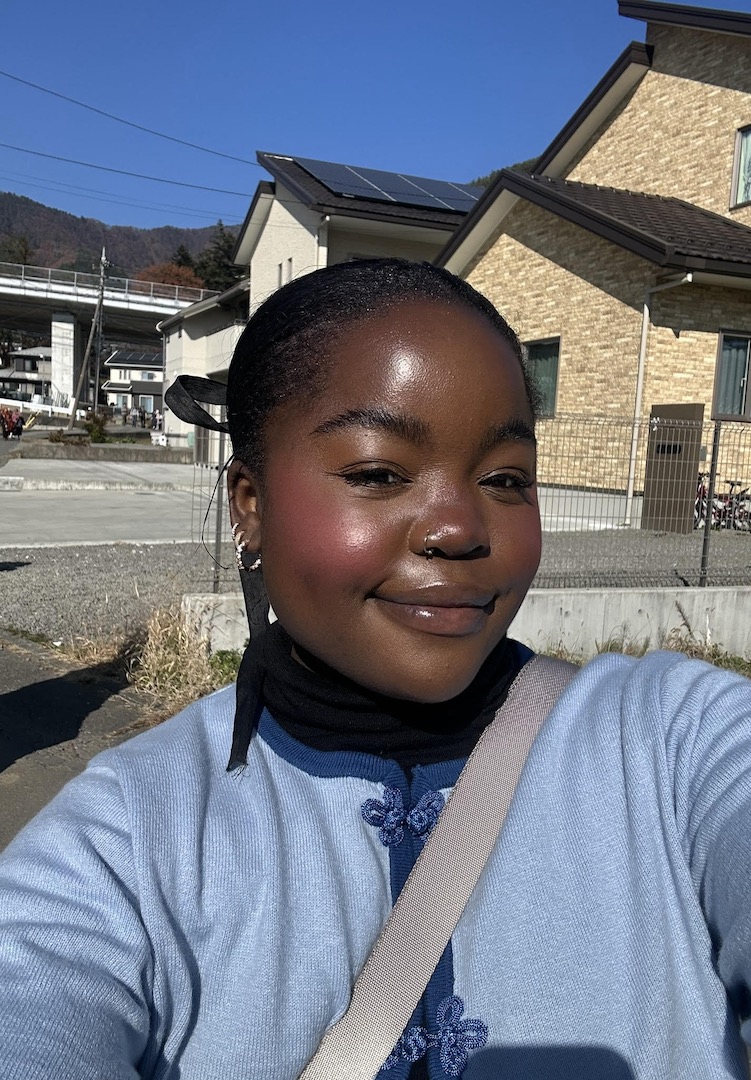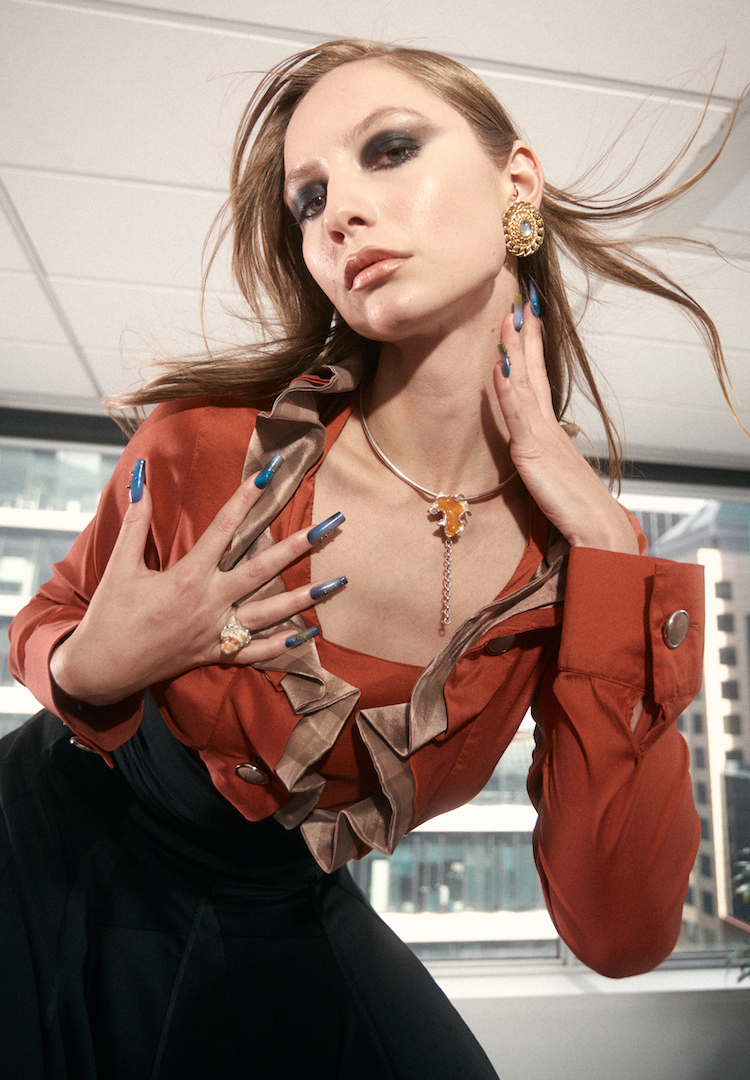Australian content creator Carmen Azzopardi is using her online platform to normalise chronic illness
IMAGE VIA @ZIGS_MOM/INSTAGRAM
WORDS BY RUBY STALEY
Influencing for good.
Even from across a cold Zoom call, talking to Carmen Azzopardi was the warm hug I didn’t know I needed after a long day at work. Known by many online as @zigs_mom, Carmen’s social media presence extends most bounds.
She’s the queen of social media and public relations for Australian brand Dyspnea, a big-boob champion for size-inclusive swimwear brand Raq Apparel and she’s also making moves to align herself as an advocate for the normalisation of Type 1 diabetes and chronic illnesses.
Looking for more nourishing reads? Try our Life section.
As she filled me in on her views about the potential of social media when it comes to raising awareness about chronic illnesses, her infectious positivity practically radiated through the screen and I left the interview feeling uplifted, but more importantly, positive about the future of the industry.
Hey Carms! Kicking things off, how would you describe what you do online?
Hey! Oh, starting off with a big one. I’ve actually been struggling with that lately because I’ve been hesitant to say I’m an influencer, although I guess I’d say I’m a creator. First and foremost, I’m a PR and social media executive full time for Dyspnea and Raq Apparel. I also post stuff I enjoy whether that’s outfits or food and I just kind of started to accumulate a following.
Then, when I was diagnosed with diabetes, not even a year ago now, I started to utilise my platform to connect with the diabetic community because I don’t know anyone in my life that has diabetes. Once I started to share my own personal experience, my platform started to grow even more. So, I would say what I’m potentially doing is cultivating a community of like-minded creatives with a focus on chronic illness awareness.
Yes, love that! There are not enough young people who talk about diabetes out there and I’m sure a lot of people feel alone in their diagnosis. How did you feel when you were first diagnosed?
I was in shock for sure but when I was first diagnosed I found there was really nothing out there for younger people about diabetes awareness. Type 1 can be genetic but it’s an autoimmune condition so it oftentimes can spring up out of nowhere, so I’ll probably never know why it is that my pancreas decided to fail. I didn’t really know anyone else with diabetes or with a chronic illness and if I did, they just didn’t talk about it. I felt like I was totally alone. It was only a couple of months into it [that] I realised how prevalent it is amongst younger people and I started to learn about the community online.
After opening up about your diagnosis online, were you made aware that you may have helped others feel less alone as well?
I’ve always been keen on curating a feed that makes you feel positive and supported, so I thought I better start by following some diabetes influencers. But I found there wasn’t a lot and when they were there they were super diabetes-centric and that was all they posted about. It was almost too much. I found myself initially following these people I thought I should and then going and unfollowing them because it was too much, a lot of information all the time and I wasn’t ready for it.
It wasn’t until months down the line when I met my friend Jas, we had the same specialist in Sydney, have a lot in common and we connected. Through her, I met other people online who have diabetes but that’s not the only thing they post about. It’s this really nuanced thing in the digital community where someone is either posting 24/7 about their chronic illness or not acknowledging it at all. I’ve found there’s currently this space for influencers and creatives to normalise chronic illness in a way that’s not focusing on it 24/7.
View this post on Instagram
How do you ensure something like a chronic illness doesn’t take over your entire identity especially if all your followers are there because of said illness?
First and foremost, I love creating digital spaces that foster creative communities online rather than being a branding exercise. Similar to the way we used to use Tumblr back in the day, when I started my Instagram I wanted to use it in a way to meet cool new people and brands and creatives, rather than following people I think I have to, and that’s what I’ve always tried to stay true to. My Instagram will always be what I want to post and when I feel like it.
Does that have anything to do with your hesitancy to call yourself an influencer as well? Do you think a lot of the industry only follow people because they think they have to?
Definitely that, but I’ve been in the social media industry for almost seven years now, and over the years working in house for many different brands I’ve dealt and communicated with every fashion and lifestyle influencer in Australia. Some of them have been great and we’re still friends but some of it opened my eyes early on to what a business Instagram is and how people’s perception of somebody online is usually 100 per cent warped.
At the end of the day, it’s a career for them and that’s what they prioritise but I guess I’ve always pushed against being called an influencer because I’m not creating to influence people. If that happens as a result, that happens, but I’m creating so I can feel like I’m cultivating a community that I enjoy being a part of and that I can learn from and grow with.
Casual posting, especially on Instagram, is something that recently reached trending status and users and influencers alike are posting random carousels to their feeds. Do you think your approach to social media feeds into this idea of casualisation or is it more about being genuine?
I think both ideas go hand in hand. If you’re posting things because you want to post it, you’re also being genuine. It’s not something that I set out to do, but I guess something I am helping to do is to normalise discussion around chronic illness especially in young people and women. But as well, I feel like I should try to normalise my everyday life as well through my social media. Posting all the swipeys and photos of food and stuff like that, I’m doing it, yes, as a casual form of social media but also because I’m talking about my diabetes and that correlates with other parts of my life.
Obviously you get lots of people asking you questions, not only about diabetes but other topics too. How do you feel about that back and forth communication with followers?
Yeah, of course, I mean there’ll always be that negative side of unwanted attention, from males particularly, and that was something I really used to struggle with. But for the most part, I love the fact I can have conversations with people who either have diabetes or someone in their life does, or even a different chronic illness. It’s those conversations that I love having because I feel like I take away so much from them. It never feels like followers or strangers reaching out either when that’s the topic, it just feels like friends.
View this post on Instagram
In addition to your diabetes advocacy, fill me in on the love story between you and Dyspnea.
Ah, I feel so lucky to be able to work with them. I first saw Dyspy when I was helping backstage at a fashion show and I saw what they were doing, all the sparkles and the pompoms, and I was mesmerised. I loved them and knew I wanted to be involved. I saved up and I bought the Mother Fluffer slip dress and I took a million photos and sent them to Dyspy, basically continually harassed them because I loved what they were doing and wanted to be friends with them.
It was years before I became friends with Jameen and Rachel, the directors, and when they followed me on my personal Instagram I was losing my mind. At the end of 2019, they advertised for a social media role based in Perth but because I was living in Sydney, I didn’t think I could apply. After chatting to the girls about being disappointed, they basically offered me a role saying they wanted me to be involved. For a while, I juggled both my full-time job and my work at Dyspy because I wanted to be involved in any capacity.
Then, when I was diagnosed, I told the Dyspy team and told my bosses at my full-time job. The Dyspy girls were super supportive and understanding, it was really lovely. The response from my full-time job, which I had been at for a lot longer, was basically asking me if I was coming in or not. I realised I didn’t want to work for anybody that wasn’t as supportive and understanding as the Dyspy girls. Within a month of leaving that job and during the pandemic, I picked up three clients including Millie Savage and Raq.
Amazing! Isn’t the saying one door shuts and another 17 open?
I know, but it wasn’t until that point that I should consider following my intuition. I always felt like taking a risk would work for everyone except for me until it actually worked out. I feel so lucky to work with brands that I actually love and genuinely believe in and align with their ethos. And, I love working with women! For now, I’m pretty happy going with the flow because my diagnosis is still so new and every day is different so I don’t want to take on too much and risk getting burnt out.
That was a huge lesson for me after last year, and I’m sure your experience was doubled considering your diagnosis, that it’s okay to slow down and to put your own health first.
Exactly, because you’re burning yourself out for what? I’ve gone completely the other way now and I’m totally focused on my health first.
Looking after yourself is a great way forward, but tell me, what are your hopes for the future of influencing, online communities and your space within it all?
Great question! I hope, it’s going to sound so cheesy, that people learn that it’s okay to step into their authentic self and embrace what it is about themselves that makes them, them. It’s hard work as well, I’m not there yet either, but once we start to realise the power we hold by being our best selves, our most authentic selves, that’s when there’s going to be so much more creativity online, so many cooler things and it’s going to be infectious. When someone is being their authentic selves and you’re communicating with them or interacting with their content, you tend to feel better about yourself. I hope that’s what the digital space becomes. I think we’re getting closer but I’m not sure if we’ll ever get there fully.
Yeah, and although it might not be the entire internet right now, it’s nice to find solace in the fact that there are spaces to be creative online.
Exactly, and I think that the conversation around social media being detrimental for our health is valid and no one needs to be on TikTok as much as I am, but also people don’t realise that you can also harness social media to curate a space that makes you feel safe, supported and educated. When utilised correctly, it’s such a cool, great place to be and can really change your perception of yourself, your purpose and can inspire you. If I can help promote that, that would be great.
You can keep up with Carmen here.

